Presented By: Industry City
How Industry City Provides Space For Companies To Continuously Evolve
By Industry City October 11, 2021 7:00 am
reprints
In 2015, Tamara Mayne signed a lease for a 500-square-foot space at Brooklyn’s Industry City for her two-year-old manufacturing company, Brooklyn Candle Studio. At the time, Mayne was her company’s only employee.
Since then, Brooklyn Candle Studio has grown to 11,000 square feet and around 20 employees, within a contiguous space housing production, shipping, a buyer’s showroom and storage. She’s expanded her company three different times; but thanks to the unique and spacious set-up at Industry City, every move has been within the complex, where Brooklyn Candle Studio remains today.
“I feel very lucky to have found a place — especially in Brooklyn, where rents are very competitive — that was able to accommodate our growth,” said Mayne. “As we continue to grow, they have bigger and different kinds of spaces, to accommodate our needs.”

Industry City is a 6 million-square-foot mixed-use campus, occupying 16 buildings and the courtyards in between them over 35 acres. It serves as home to over 550 businesses in industries including media, production, technology, design and many more. The complex is unique in that, in a city known for office and warehouse districts, Industry City can accommodate multiple functions for the same company with contiguous spaces ranging from 2,000 to 120,000 square feet.
At Industry City, a company can have its retail store, offices, warehouse/storage unit and manufacturing and fulfillment centers all in the same place, then enjoy the complex’s more than 30 food and beverage vendors, plus entertainment options such as live music. Businesses also benefit from access to a robust talent pool, complementary workforce training and hiring services and convenient placement near the Brooklyn-Queens Expressway and the 36th Street subway station.
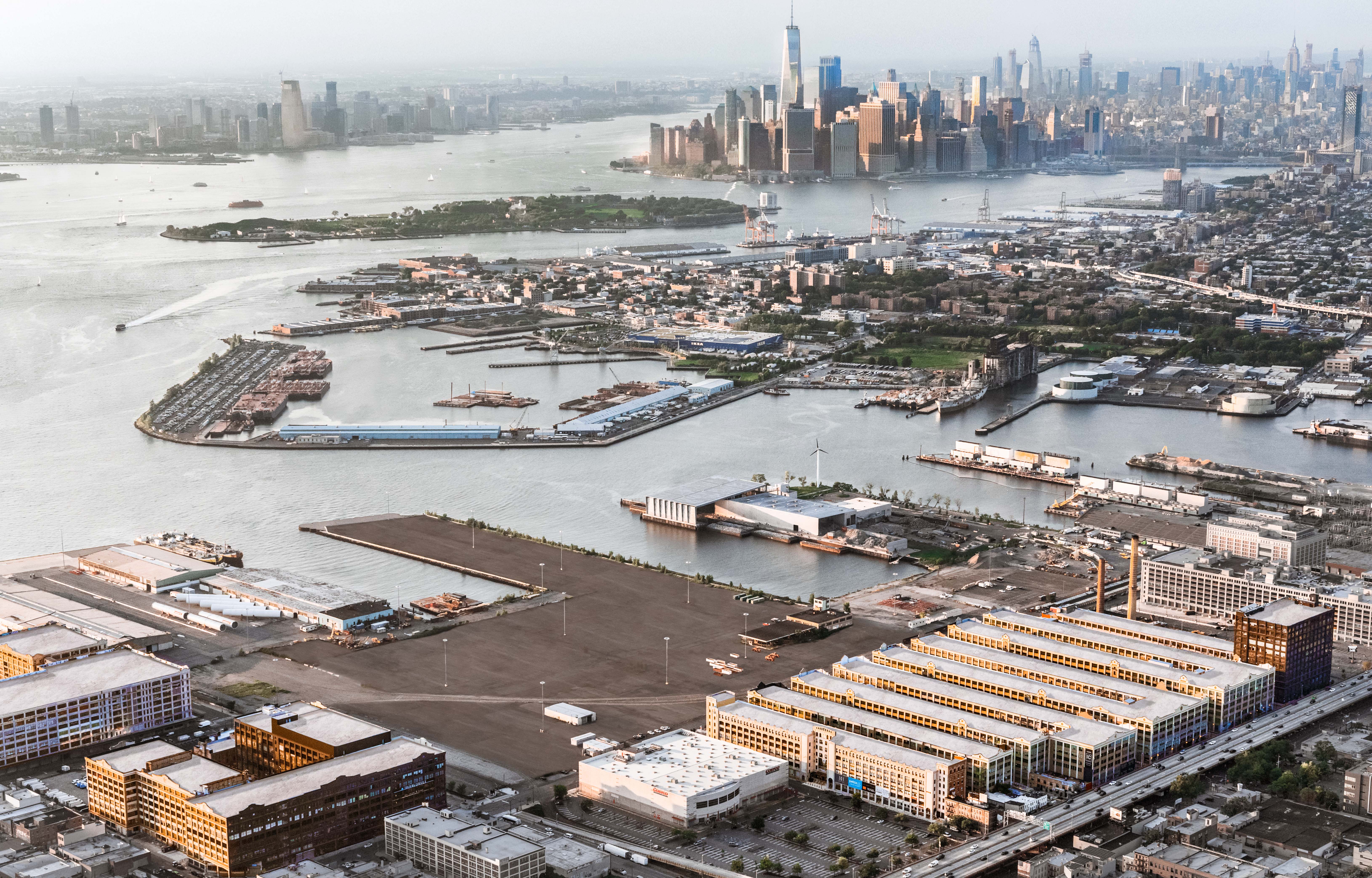
“The modernized infrastructure of Industry City is simply unmatched in the New York City region,” said Andrew Kimball, CEO of Industry City. “The ability to have your warehouse, industrial operations or content studios right next to your offices, and then an extraordinary array of amenities including food, music, and fun activities on your doorstep makes Industry City the best potential headquarters in the city for companies of any size.”
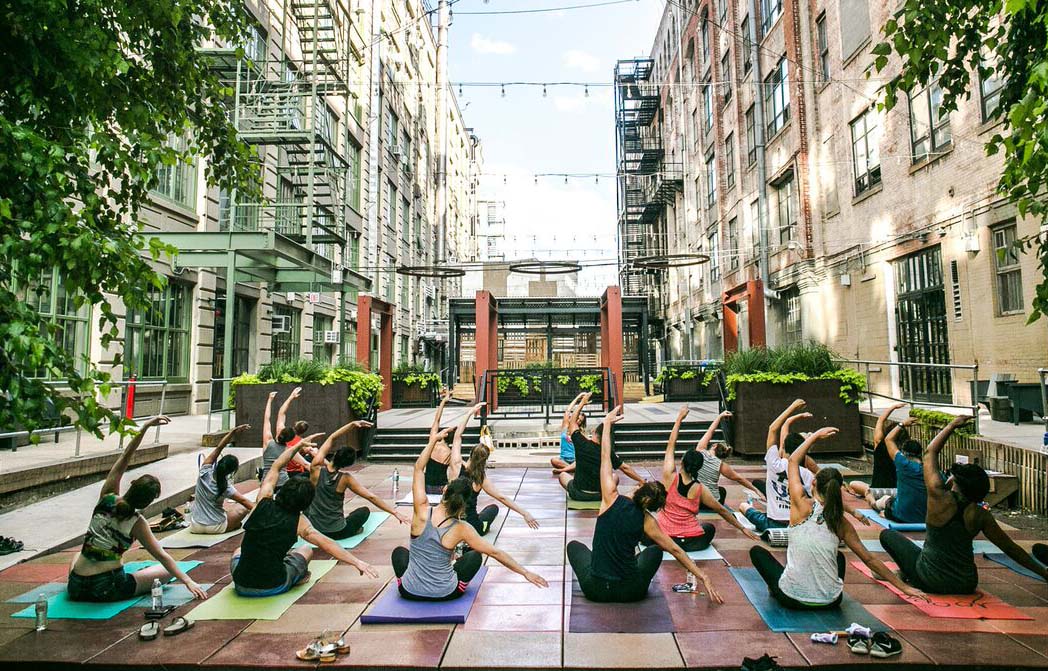
Kimball noted that Industry City has the unique advantage of being extensive but also unusually nimble.
“We really want tenants to be here for the long haul,” Kimball said. “We often see tenants suddenly need an additional 10,000 or 15,000 square feet of warehousing space within days to meet new demand. When you have 16 buildings and 6 million square feet of space, you have the flexibility to provide that.”
Established in the 1890s, Industry City, then known as Bush Terminal, was initially a warehouse distribution center, accommodating large-scale distribution by rail, sea and truck. The terminal enjoyed success until, like many other industrial waterfront properties, it fell into a period of decline in the 1960s.
In 2013, a $450 million redevelopment effort was initiated, bringing about a modern vision for the property. This included installing some of the fastest and most robust power and high-speed internet connections in the city to handle 21st century business needs, as well as creating outdoor space for work and leisure, and defining a retail corridor at the heart of the campus. These changes not only rejuvenated Industry City, but transformed it into a vibrant neighborhood of collaborative local businesses. Since 2013, Industry City has quadrupled its number of businesses across sizes and sectors, and it has created over 8,000 new jobs.
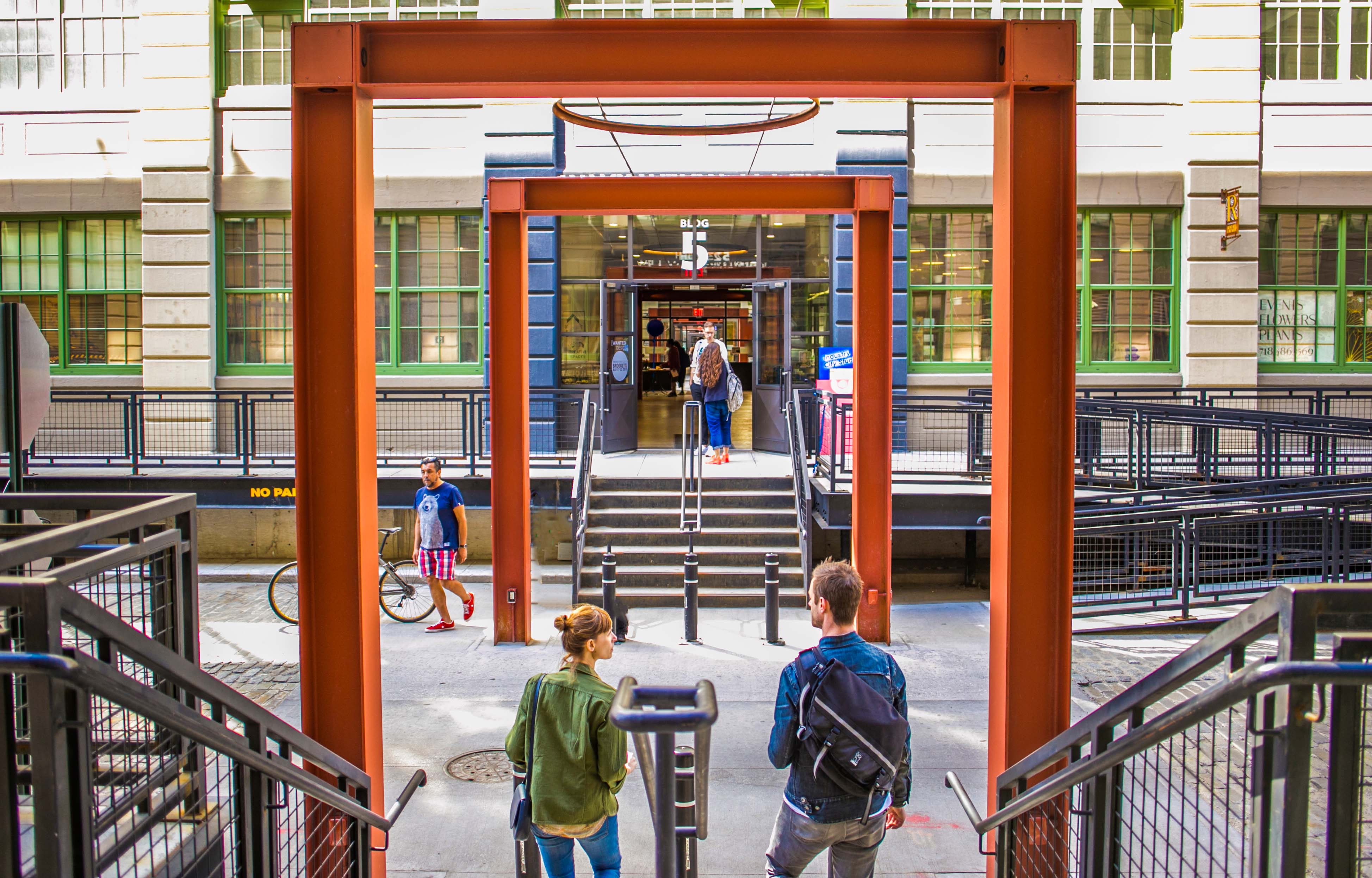
“We’ve taken Industry City into the 21st century,” said Kimball. “We have massively diversified the sectors we have here, with 550 tenants representing every sector of today’s economy from traditional warehouse distribution, now evolving into e-commerce, to content creation, biotech and a robust mix of small makers.”
As such, the Brooklyn businesses at Industry City span a wide variety of uses — sometimes placing different divisions of their businesses in separate buildings, other times under “one roof.” AbelCine, a film and video equipment rental company, houses its offices, camera rentals, showroom, repairs center, warehouse and a state-of-the-art training center and auditorium in a 50,000-square-foot space at Industry City. The Garage, a video production company specializing in commercials for food and beverage companies, co-locates its offices with a workshop, storage and content studio with robotic cameras in its 14,000-square-foot space.
High-end furniture rental start-up ZZ Driggs also has its office, warehouse and fulfillment at Industry City. ZZ Driggs, which opened in 2014, relocated to Industry City from a location half a mile away this April. Whitney Frances Falk, the company’s founder and CEO, was inspired to seek out new accommodations by the uncertainty caused by the pandemic. At Industry City, she found a flexible multi-use space that offered greater warehouse space along with significantly cheaper rent, and a team she saw would work closely with her to ensure that all of ZZ Driggs’ needs were covered.
“They take a really human approach, which was needed in such a time of unknowing and instability with COVID,” said Falk, who also credits the complex’s high-touch, personalized management style with making it a more attractive home for her business. “It’s a campus for growing companies. There are food offerings, community events and a newsletter. They’re always updating you on goings-on, or if, say, a tropical storm is heading our way. It’s a partnership. It’s such a community of growing companies that are primarily in the design/creative camp. As business owners we have so many overlapping needs, so it’s great that we can share and utilize resources.”
Kimball noted that making Industry City this sort of creative incubator is exactly what the developers intended when they redeveloped the complex.
“We help companies like Brooklyn Candle start very, very small in affordable spaces, and then as they grow and diversify, we help find spaces for them to expand throughout the campus,” Kimball said. “We now have 550 tenants, and over 350 are in these really, really small creative workshops, but they provide the backbone of the ecosystem, the energy that attracts bigger companies.”
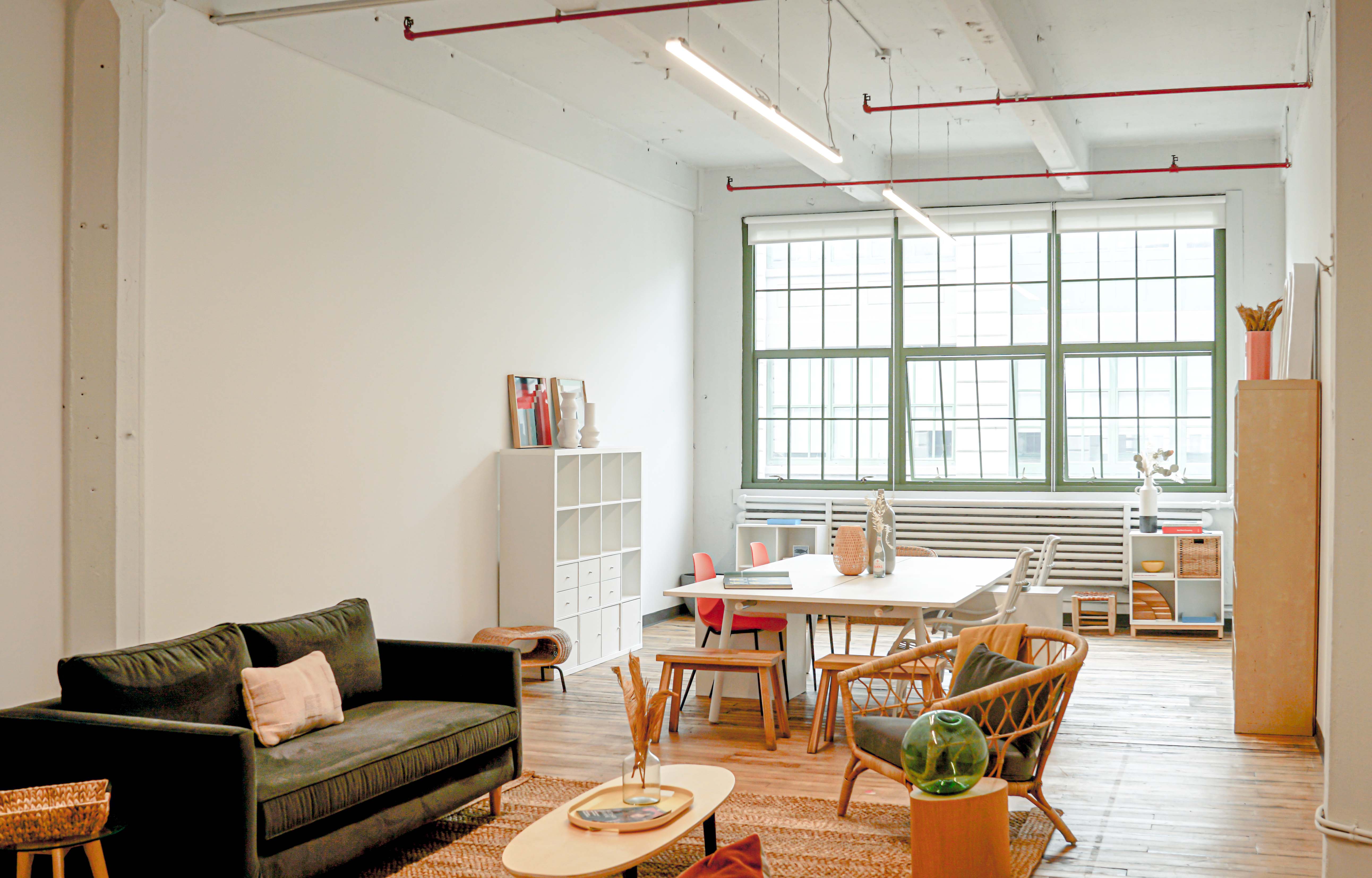
While Industry City has become known as the premier home for creative maker companies with varying space needs, the complex is not resting on its laurels, instead making continuous improvements while keeping rents competitive. Industry City recently announced a major upgrade to five of its industrial buildings including updated lobbies and covered loading docks, speed-enhancing modifications to both its freight and passenger elevators as well as additional food amenities.
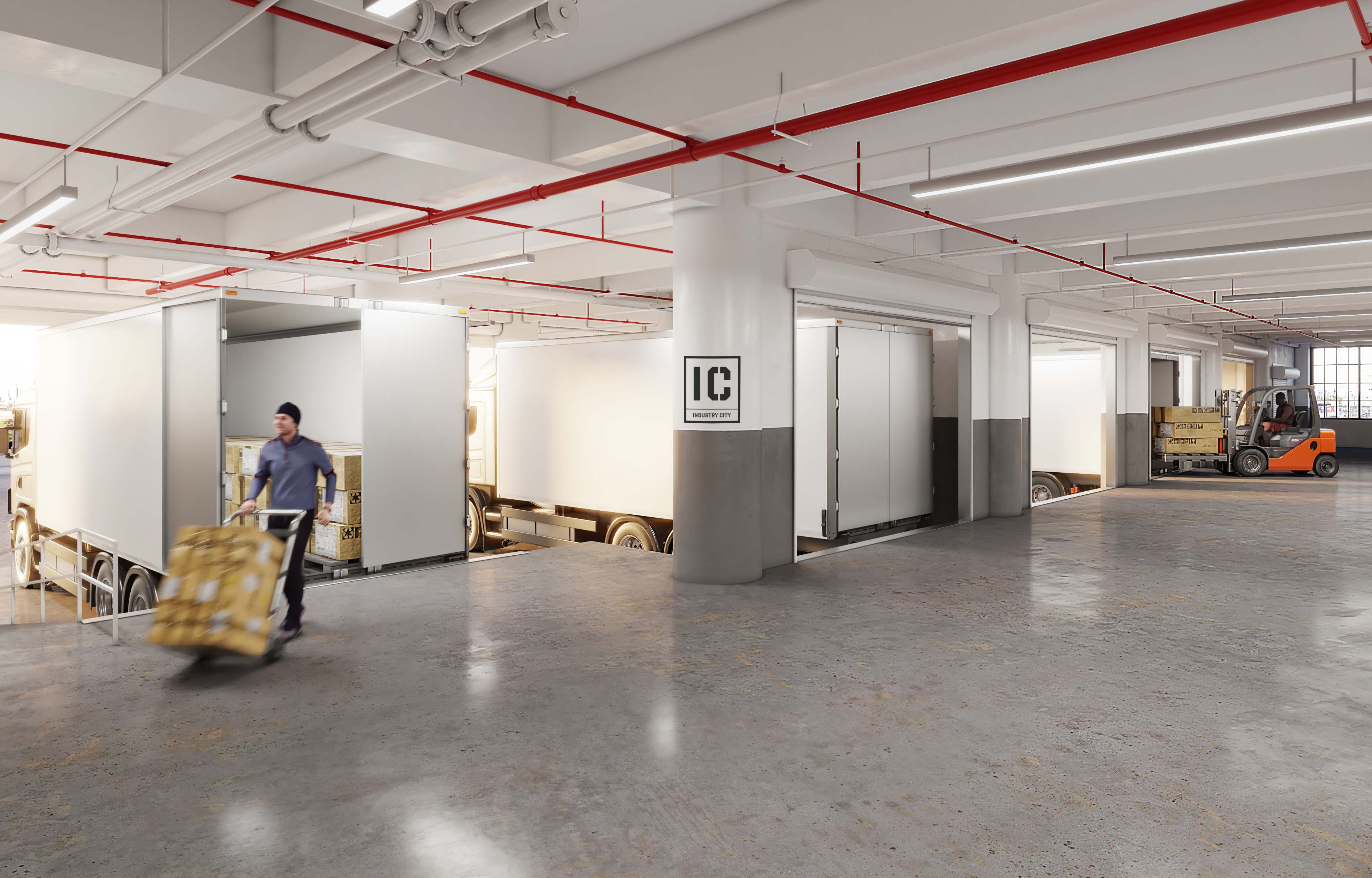
As long as young, growing companies continue to have complex and unpredictable needs in servicing their growth, Industry City will remain their comfortable and accommodating home.
“Our growth has been pretty unpredictable,” Mayne said. “We know that if we do grow to the point where we need a lot more space, Industry City will be able to accommodate that growth as soon as we need it.”



